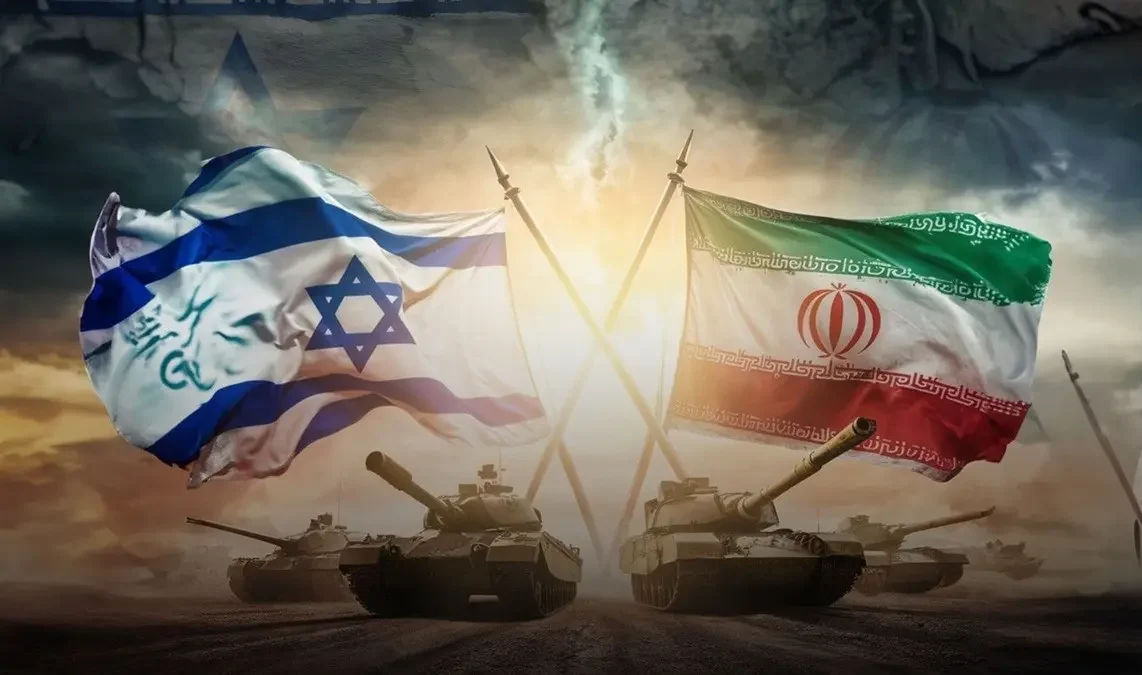Tel Aviv/Tehran, June 13, 2025
In a dramatic and high-stakes escalation, Israel has launched “Operation Rising Lion,” targeting Iran’s core nuclear infrastructure in Natanz early Friday morning. The Operation Rising Lion, which Israeli officials describe as a “strategic preemptive defense campaign,” marks one of the most direct and aggressive moves by the Jewish state in recent years and significantly raises the risk of full-scale regional conflict.
Israeli Prime Minister Benjamin Netanyahu, in a solemn televised address following the strikes, confirmed the commencement of the Operation Rising Lion and described it as a “mission of survival” aimed at dismantling what he called a “clear and present existential threat” posed by Iran’s advancing nuclear weapons program.
“This Operation Rising Lion will take as long as needed to complete the task of fending off the threat of annihilation against us,” Netanyahu declared.
What Happened?
In the early hours of Friday, multiple explosions rocked the Iranian capital, Tehran, and its surrounding provinces, including Isfahan, home to the key Natanz uranium enrichment facility. Reports from Iranian sources confirmed loud air-raid sirens, widespread power outages, and a flurry of anti-aircraft fire in response to incoming projectiles and drones.
Initial intelligence suggests that the Natanz nuclear site, long suspected to be the centerpiece of Iran’s uranium enrichment efforts, was heavily targeted and severely damaged. Unconfirmed reports claim the elimination of top Iranian Revolutionary Guard Corps (IRGC) commanders, including Hossein Salami and Mohammad Bagheri, as well as the deaths of several senior nuclear scientists.
The Israeli government stated that all strikes were focused solely on military assets and nuclear infrastructure, emphasizing that civilian populations were not targeted.
Why Now?
The timing of the Operation Rising Lion is being viewed in light of Iran’s accelerated nuclear program, which has set off alarms across the international community. In the past three months alone, Iran is reported to have enriched uranium at an unprecedented rate, accumulating material sufficient for multiple nuclear warheads.
On Thursday, the International Atomic Energy Agency (IAEA) Board of Governors formally censured Iran for non-compliance, marking the first such censure in two decades. This international rebuke came amid stalled negotiations with the United States over re-entry into the 2015 Iran nuclear deal.
Israeli leadership insists that the decision to act was made with no viable diplomatic off-ramp remaining. Netanyahu compared the current threat to the Holocaust, warning that Israel would not allow itself to be a victim again.
“Eighty years ago, the Jewish people were the victims of a holocaust perpetrated by the Nazi regime. Today, the Jewish state refuses to be a victim of a nuclear holocaust,” Netanyahu asserted.
Iran’s Response and Global Reactions
Iranian state media has acknowledged the attacks but described them as “terrorist strikes” carried out by “Zionist aggression”. While Tehran has not yet announced a formal retaliation, officials have vowed that the country will “respond with force and fury.”
The strikes have elicited swift responses from global leaders. The United States, while not directly involved, has urged “maximum restraint” on both sides, with President Kamala Harris calling an emergency security briefing. Russia and China condemned the attack, accusing Israel of violating international sovereignty. Meanwhile, the European Union has called for an urgent UN Security Council meeting.
Strategic Justification: Israel’s Position
Israel has long viewed Iran’s nuclear ambitions as an existential threat, alleging that Tehran’s regime has both the intent and near-term capability to build nuclear weapons. According to Israeli intelligence, Iran now possesses enough highly enriched uranium for up to nine atomic bombs, and has taken steps toward weaponizing the material.
Netanyahu maintained that the Operation Rising Lion was carried out in self-defense, stressing that Israel’s actions were targeted and proportionate.
“We are not at war with the Iranian people,” he said. “We are defending ourselves against the tyrants of Tehran, who openly and repeatedly declare their intent to destroy us.”
The Broader Picture: Risks of a Regional Conflict
The strike raises fears of wider regional escalation, with concerns that Iranian proxies in Lebanon (Hezbollah), Syria, Iraq, and Yemen could retaliate against Israeli or Western targets. There is also apprehension about the impact on global oil supplies, as tensions in the Strait of Hormuz—a critical maritime chokepoint—may escalate further.
Military analysts believe that “Operation Rising Lion” may be just the beginning of a multi-phase campaign, aimed at crippling Iran’s nuclear capabilities once and for all. Others warn that such actions, while tactically effective, may harden Iranian resolve and trigger a protracted regional conflict.
Conclusion
Israel’s strike on Iran’s nuclear core is one of the most consequential military operations in recent Middle Eastern history. Framed as a last-resort defensive measure by Israeli leadership, it underscores the fragile state of global diplomacy, the dangers of nuclear proliferation, and the ever-present volatility of the region.
As the world waits to see how Iran responds, the prospect of a broader military confrontation looms large, threatening not only regional peace but the global economic order.







